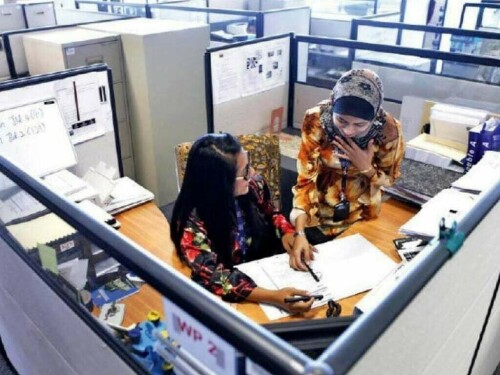State Bank of Pakistan Joins WE Finance Code Initiative
The State Bank of Pakistan (SBP) has officially become a participant in the Women Entrepreneurs Finance Code (WE Finance Code), a global endeavor in partnership with the Asian Development Bank (ADB) and under the guidance of the World Bank. The ADB’s involvement includes a substantial $500 million financial commitment to the Government of Pakistan.
This funding is strategically designed to address the gender disparity and promote enhanced equality, emphasizing the advancement of women’s financial integration and economic empowerment. Research from global financial institutions suggests that this program could potentially increase Pakistan’s gross domestic product (GDP) by 30%, fueled by the expansion of women’s involvement in the economy.
Commitment from Financial Institutions
Approximately 20 banks and financial institutions operating within Pakistan have pledged their support for this SBP-driven initiative. Their engagement highlights a joint effort to facilitate women’s access to financial resources, specifically by broadening their eligibility for loans and related financial offerings.
Christine Engstrom, representing ADB, stated that the regional financial body supports the Women Inclusive Finance Sector Development Programme in Pakistan.
“This $500 million program with the Government of Pakistan is structured to narrow the gender finance gap. It incorporates policy-based lending and technical support to stimulate sector-specific reforms and provide financial access to over 2 million women.”
She emphasized that integrating women into the financial system is now a crucial component of economic advancement.
“It is vital for fostering inclusive growth, particularly within the financial system, given that numerous women remain outside the formal financial sector.”
She recognized that the SBP’s “banking on equality and policy framework” has initiated a shift in institutional attitudes, incorporating gender inclusion into the core of the financial sector.
Citing research from global financial institutions such as ADB and the Islamic Development Bank (IDB), SBP representative Abid Qamar noted that empowering women and achieving gender parity in the workforce could boost global GDP by up to $28 trillion.
“Focusing solely on South Asia, this could contribute up to half a trillion dollars to the region’s economies. In Pakistan’s case, reducing the gender gap could increase the GDP by approximately 30%.”
Providing banking services to underbanked and unbanked women through branches, ATMs, and loans will also aid banks in growing their revenues.
“Expanding financial services for women could raise banking revenue by up to $650 million in Pakistan, highlighting the importance of women’s economic empowerment,” he added.
Approximately 17 million women are employed across various sectors in Pakistan, out of a total of 79 million women of working age.
In a pre-recorded video message, Wendy Teleki, representing the WE Finance Secretariat, stated that the secretariat has been dedicated to women’s financial inclusion and empowerment globally.
Over the past two years, they have introduced the refinance code at the World Bank, International Finance Corporation (IFC), and other key signatory institutions and partners.
“Nearly 30 countries and over 250 financial institutions have endorsed the code, pledging policy reforms to include women in the financial sector, support SMEs managed by women, and generate employment opportunities for them,” she explained.
“These women also have opportunities to advance if we eliminate obstacles to growth, such as access to financing and policy reforms.”
The WE Finance Secretariat aims for the code in Pakistan to extend beyond banks to include fintech companies, digital finance institutions, investment firms, and equity funds.
“The refinance code supports our progress toward SGD5, which is centered on achieving gender equality and empowering all women and girls,” she concluded.
SBP Governor Jameel Ahmad remarked that the WE Finance Code launch signifies a vital step in promoting inclusive and sustainable economic growth by prioritizing women’s economic involvement within the national development strategy.
According to Ahmad, the justification for gender equality is both moral and economic.
“No nation can prosper when half its population is underemployed and underserved. In Pakistan, only 22% of women participate in the labor force, with only 164,000 women entrepreneurs.”
Gender disparities in education, mobility, skills, and access to financial services continue to impede women’s full economic contribution and are major factors in Pakistan’s low savings and investment rates compared to its regional counterparts.
“SBP will collaborate with financial institutions, regulators, government agencies, the private sector, and academia to create an inclusive ecosystem for women entrepreneurs,” he concluded.



Comments (0)
No comments yet. Be the first to comment!
Leave a Comment